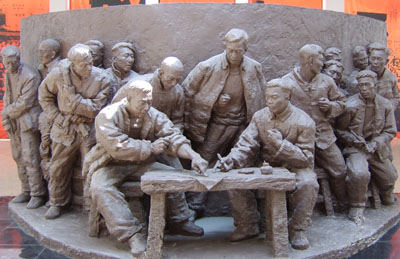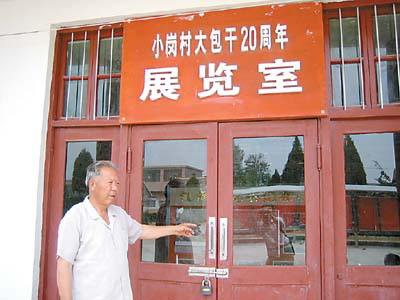
In 1978, 18 farmers in Xiaogang village, in east Anhui Province, signed a secret agreement to divide communally owned farmland into individual pieces called household contracts, thus inadvertently lighting the torch for China's rural revolution. Today they are considering pooling their farmland again to create an even more efficient economy.
Yan Junchang, one of the 18 farmers, is now 67 years old. He was the leader of the production team in Xiaogang Village and currently he is the honorary director of the Memorial Hall of the All-round Contract System.

Before 1978, Xiaogang was infamous for its poverty. Almost all the local families had to roam the countryside begging after the autumn harvest. The village population was only 120 before 1958 and 67 villagers died of hunger during the Great Leap Forward from 1958-60. In Fengyang County, where Xiaogang is located, one in four people perished – 90,000 in all. "But no civil servant suffered from hunger in our region," Yan said.
"Villagers tended collective fields in exchange for 'work points' that could be redeemed for food. But we had no strength and enthusiasm to work in collective fields due to hunger. We even didn't have time because we were always being organized by governmental work teams who taught us politics," Yan recalled. "It was then that I began to consider contracting land into individual households."